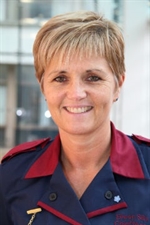07.01.16
CQC acts on Francis review by appointing ‘guardian’ for whistleblowers
The CQC has appointed the country’s first National Guardian to support healthcare staff in speaking out about concerns over patient safety.
Dame Eileen Sills, chief nurse at Guy’s and St Thomas’ NHS FT in London, is expected to lead a “cultural change” across trusts and foundation trusts to ensure staff have the necessary confidence to raise issues with managers.
 As part of her role, Dame Eileen will lead, advise and support people at trusts appointed as the ‘local freedom to speak up guardians’. They will be responsible for nurturing a culture of openness at local level, fed by the good practice shared by the National Guardian.
As part of her role, Dame Eileen will lead, advise and support people at trusts appointed as the ‘local freedom to speak up guardians’. They will be responsible for nurturing a culture of openness at local level, fed by the good practice shared by the National Guardian.
Sills will also report on common themes across trusts and identify possible barriers that prevent the NHS from having a “truly safe and open culture”.
According to the CQC, she will be “completely independent, highly visible, and will speak freely and honestly” about areas where changes are needed.
She will also work with NHS England and NHS Improvement, but will take an independent stand to report on any matters that could concern these national bodies.
The need for an independent National Guardian was first highlighted in Sir Robert Francis’ review of whistleblowing across the health service in 2014, which found a significant chunk of health workers are afraid to speak out about poor patient care and safety failures.
Sir Robert, who led two majorly groundbreaking inquiries into the Mid Staffordshire scandal, recommended that a ‘freedom to speak up guardian’ should be appointed in every trust to support staff. In February 2015, health secretary Jeremy Hunt pledged to create NHS ‘whistleblowing guardians’, hoping to implement this before the general election.
In November, Monitor, NHS England and the NHS Trust Development Authority also drew up the first national policy to improve the working environment for whistleblowing staff, with all organisations but primary care providers expected to adopt the proposals. A consultation on the policy, issued in November, is due to close tomorrow (8 January).